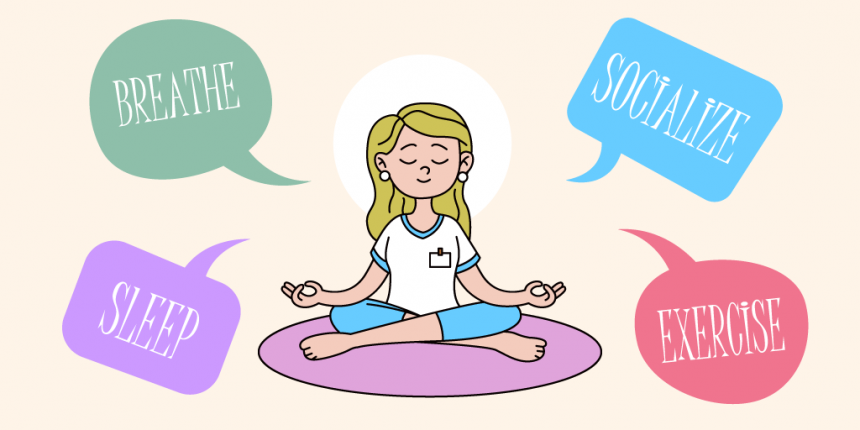Stress is a part of everyday life, and it can take a toll on both our physical and mental health. While it's impossible to eliminate stress entirely, there are ways to manage it effectively. Here are some of the healthiest and simplest ways to control stress:
Exercise
- Exercise is an excellent stress buster. When we exercise, our bodies release endorphins, which are natural mood boosters. Exercise also helps to reduce levels of the stress hormone cortisol, which can help us to feel calmer and more relaxed. You don't need to do high-intensity workouts to see the benefits; even gentle activities like yoga or walking can help.
Get enough sleep
- Sleep is essential for our bodies to function correctly, and getting enough sleep can help us to manage stress better. When we're tired, we're more likely to feel irritable, anxious, and stressed out. Aim for seven to nine hours of sleep a night, and try to establish a regular sleep routine to help you wind down at the end of the day.
Practice mindfulness
- Mindfulness is the practice of being fully present in the moment and paying attention to our thoughts and feelings without judgment. Mindfulness can help us to manage stress better by increasing our awareness of our stress triggers and allowing us to respond to them more effectively. Mindfulness can be practiced through meditation, breathing exercises, or simply paying attention to our surroundings.
Connect with others
- Human beings are social creatures, and we need connection with others to thrive. When we're stressed, talking to a trusted friend or family member can help us to feel better. Even just spending time with others can help us to feel less alone and more supported.
Prioritize self-care
- Self-care refers to activities that we do to take care of ourselves and our well-being. When we prioritize self-care, we're better able to manage stress and prevent burnout. Self-care can take many forms, such as taking a bubble bath, reading a book, or simply taking a few minutes to relax and breathe.
Limit caffeine and alcohol
- Caffeine and alcohol can both exacerbate stress and anxiety. Caffeine is a stimulant that can increase heart rate and make us feel jittery, while alcohol is a depressant that can make us feel more anxious and irritable. Limiting caffeine and alcohol can help us to manage stress better and feel more calm and more centered.
Get organized
- Disorganization can be a significant source of stress for many people. When we feel overwhelmed by clutter and chaos, it can be challenging to stay focused and productive. Taking the time to get organized can help us to manage stress better by reducing distractions and creating a more calming environment.
Practice gratitude
- Practicing gratitude involves focusing on the things that we're thankful for in our lives. When we practice gratitude, we're less likely to get caught up in negative thinking and more likely to see the good in our lives. Practicing gratitude can be as simple as taking a few minutes each day to write down the things that we're grateful for.
Take breaks
- When we're stressed, it can be tempting to try to power through and get everything done as quickly as possible. However, taking breaks is essential for our mental and physical well-being. Taking breaks allows us to recharge our batteries, reduce stress levels, and come back to our tasks with renewed focus and energy.
Seek professional help if needed
- Sometimes, despite our best efforts, stress can become overwhelming, and we may need professional help to manage it. There is no shame in seeking help from a therapist, counselor, or other mental health professional. These professionals can provide support, guidance, and tools to help us manage stress more effectively.





Comments